Theatre's great. It's such an act of faith. It's a wonderful art form where you suspend disbelief for a couple of hours. It's a lovely art form because the actors and the audience are alive and in the room at the same time together. That's why I love the theatre. |
|
FRIDAY: My Book World | Matt Bell's novel Appleseed
0 Comments
FRIDAY: My Book World | Matt Bell's novel Appleseed
My Book World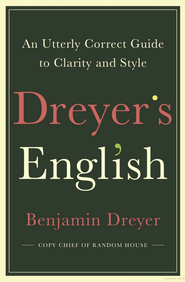 Dreyer, Benjamin. Dreyer’s English: An Utterly Correct Guide to Clarity and Style. New York: Random, 2019. This book about copyediting offers readers an excellent review if you think you already know the business pretty well, and, if you don’t, then it’s a great place to begin (Dreyer himself includes a list of fine sources). Even so, he makes something like the subjunctive mood (“mood” being a grammatical concept not always taught today) utterly clear (If I were vs. If I was)—not as rigid as, say, the Chicago Manual of Style. Dreyer nevertheless has his pet peeves and his absolutes: This may be a particular peeve of mine and no one else’s, but I note it, because it’s my book: Name-dropping, for no better reason than to show off, underappreciated novels, obscure foreign films, or cherished indie bands by having one’s characters irrelevantly reading or watching or listening to them is massively sore-thumbish. A novel is not a blog post about Your Favorite Things. If you must do this sort of thing—and, seriously, must you?—contextualize heavily” (113). I give Dreyer another thumbs up because he has a broad (flexible and forgiving) understanding of the English language, the concept of rhetoric being one of them. A peeve of mine (and he articulates it well) is how people misuse the term “begging the question” in common speech (especially on MSNBC or CNN) and writing, mistakenly taking it to mean “raising the question”: Begging the question, as the term is traditionally understood, is a kind of logical fallacy—the original Latin is petitio principii, and no, I don’t know these things off the top of my head; I look them up like any normal human being—in which one argues for the legitimacy of a conclusion by citing as evidence the very thing one is trying to prove in the first place. Circular reasoning, that is” (151). The greatest example from my classical rhetoric text is, “When did you stop beating your wife?” An apparent single premise actually assumes two, one of which is not possible without the other. To stop beating your wife you had to begin at some point, making the question a trap. At the same time, Dreyer is unusually forgiving about other concepts, some of which cause me to grind my teeth. Even a few scientists seem to forget that “data” are plural (hee hee) for “datum.” The data clearly show … (not “shows”). Same with “media.” The media are (not “is”) always talking about how the media are not to blame. Ah, so satisfying to my ear, and yet Dreyer seems to shrug it off. Dreyer’s greatest talent may be as wordsmith. He makes this discussion of “continual” vs. “continuous” pellucid: “Continual” means ongoing but with pause or interruption, starting and stopping, as, say, continual thunderstorms (with patches of amity). “Continuous” means ceaseless, as in a Noah-and-the-Flood-like forty days and forty nights of unrelenting rain” (179). He tackles “epigraph” and “epigram”; he tackles “farther” and “further,” and makes their meanings clear. Most of all, Dreyer’s book seems to demonstrate that the copyeditor, far from being captain of the grammar police, exists to take a writer’s finished manuscript and style his or her words to make the final product seem more like the original than the original. In other words, the copyeditor’s work should be invisible. Well done, it seems like magic, particularly to the author. NEXT FRIDAY: My Book World | Matt Bell's novel, Appleseed
TOMORROW: My Book World | Benjamin Dreyer: Dreyer's English
FRIDAY: My Book World | Benjamin Dreyer: Dreyer's English: An Utterly Correct Guide to Clarity and Style
FRIDAY: My Book World | Benjamin Dreyer: Dreyer's English: An Utterly Correct Guide to Clarity and Style
My Book World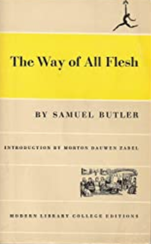 Butler, Samuel. The Way of All Flesh. New York: Random, 194- (1903). I found this late nineteenth-century novel fascinating for a number of reasons. First, Butler undertakes to explore the centuries-old problem of conflict between fathers and sons. The Pontifex family is indeed a family of priests (how audacious of Butler to further his satire by borrowing the word from Roman times). But dear young Ernest Pontifex does not want to follow in his father’s footsteps; and then he eventually does. For a while, anyway. Then he rebels big time, winding up in gaol for molesting a woman, at which time his parents disinherit him. Mr. and Mrs. Pontifex have taken the following line of thinking as they raise their children, including Ernest: “If their wills were ‘well broken’ in childhood, to use an expression then much in vogue, they would acquire habits of obedience which they would not venture to break through till they were over twenty-one years old” (22). A number of sources advocate for the idea that Samuel Butler was gay, largely because he never married and seemed to maintain a number of close emotional relationships with men. If the subliminal crumb-droppings of this novel mean anything, Butler leaves all kinds of clues that this assertion may indeed be true (as does Maugham in his Of Human Bondage). Ernest’s father, Theobald, says the following: “It is an unnatural thing for a boy not to be fond of his own father. If he was fond of me I should be fond of him, but I cannot like a son who, I am sure, dislikes me. He shrinks out of my way whenever he sees me coming near him. He will not stay five minutes in the same room with me if he can help it” (122). Why is Ernest disposed toward this behavior? Probably because elder Pontifex beats Ernest for any number of reasons (his manipulating mother aids in this process). And which comes first, father’s rejection of son, or son’s rejection of father? When does the endless cycle of enmity begin? At any rate, many gay men are rejected by their fathers because they may see something in their sons that they do not like in themselves. Other clues? Ernest does not marry or marries badly (a bigamist, canceling his marriage) because he doesn’t get women; he has no positive feeling for women (especially his mother, though he forgives her in the end); but he does maintain longstanding relationships with various men throughout his life. Yet, the most interesting aspect of the novel may be Butler’s treatment of the root of all evil, the way of all flesh: greed, the lust for money. Readers can locate the plot on the internet, but suffice it to say that Butler makes much (a biting satire) of the British notion of passing on wealth to one’s heirs, or not doing so, which action plays a large role in this novel’s satisfying climax and denouement (the elder Pontifexes get their comeuppance for their poor treatment of son Ernest). Unlike other authors of this period, Butler writes for the most part in a manner that is simple and easy to follow, yet the novel is far from facile. Butler’s is a story that continues to unfold. It echoes throughout homes in England and around the world. NEXT FRIDAY: My Book World | Benjamin Dreyer's Dreyer’s English: An Utterly Correct Guide to Clarity and Style
TOMORROW: My Book World | Samuel Butler's The Way of All Flesh
FRIDAY: My Book World | Samuel Butler's The Way of All Flesh
FRIDAY: My Book World | Samuel Butler's The Way of All Flesh
My Book World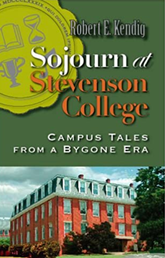 Kendig, Robert E. Sojourn at Stevenson College: Campus Tales from a Bygone Era. A compendium of whimsical events that actually did occur, modestly embellished. Wilmington: Winoca, 2005. This book is a satisfying read because the author opts to tell his story of teaching in a college town in the 1930s in a nonlinear manner. Although some characters carry over from one chapter to the next (like a meddlesome underling in the history department), each tale can more or less stand alone. This book has its poignant moments, but it is largely about humor: A filling station owner installs a large speaker under the seat (ew) in his customer outhouse and connects it to a microphone. “‘Lady, would you move over please, we’re working down here’” (46-7). At Stevenson College, students are a bit perturbed because the faculty are “unnecessarily indolent” (78) in standing for the opening and closing hymns. “During the holidays, some of the students—we never knew who were the guilty ones—gained access to the chapel. They ran uninsulated wires through the tops of the cushions on the front pews, and under the carpeting on the floor to the loud foot pedal of the piano and thence to a substantial dry cell battery located to the rear of the instrument” (79).Well, one can imagine that on that day, every faculty member stood for the opening and closing hymns. Later, the meddlesome underling commandeers the visit of a literary figure from England, attempting to make his visit as English-like as possible, even to the point of faking a British accent in what is probably a mid-South community. All throughout she rudely attempts to guide the discussion away from the local department and what and how the professors teach. Finally, when the woman expresses her fascination with the spelling of British names, the Brit himself has had enough: “This was more than Sir Reginald could stand. He sat upright in his chair and, looking directly at Mrs. Garber, he responded, ‘No, madam, I am not hyphenated. I am not even circumcised!’” (108). The story that may touch educators comes near the end when Kendig renders how he advises a star pupil who, upon graduating, has the opportunity either to play a professional sport or take advantage of a Rhodes Scholarship. The pupil asks Kendig what he ought to do. The esteemed professor asks him to ponder the following: “But think about the two opportunities ahead of you and assume for a moment that either one can lead to your being famous. Then you might ask, ‘For what would I want to be famous?’”(165-6). I won’t say which he chose. This is one of those books published by a small press that may not be picked up because it is “too parochial or too regional” in its nature. Yet it is a book that is well edited, well-designed, and one that is both enlightening and entertaining. Kudos to publisher/editor Barbara Brannon for bringing this book to light for all of us. NEXT FRIDAY: My Book World | Samuel Butler's The Way of All Flesh
FRIDAY: My Book World | Robert E. Kendig's Sojourn at Stevenson College: Campus Tales from a Bygone Era.
FRIDAY: My Book World | Robert E. Kendig's Sojourn at Stevenson College: Campus Tales from a Bygone Era.
My Book world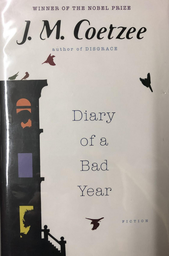 Coetzee, J. M. Diary of a Bad Year. New York: Viking, 2007. Coetzee relates the story of an aging author dying of cancer who hires an attractive young woman in his building to do typing for him. In the evenings the woman relates to her boyfriend what the developing book is like. She also engages in dialogue with the author concerning his strong opinions (also the title of the book). At some point the boyfriend becomes the author’s accountant and devises a failproof plan to cheat the author out of his estate at the time of his death. What makes this simple plot compelling is Coetzee’s structure: the top third of each page is assigned to fragments from the fictional author’s essays. A middle portion of the page, usually quite slim, is a continuing dialog between the author and the typist, where he discovers she isn’t only pretty but smart as well. The bottom section of each page portrays the relationship between the typist and her boyfriend. At least, in theory, one may read all three parts separately, from front to back because Coetzee presents them as three distinct but interrelated stories. However, I mostly read the book conventionally, attempting to keep each of the threads separately yet trying, at the same time, to see how the three threads related to one another. This novel is a fascinating read mostly because of the structure. If Coetzee had given the book a more traditional approach with alternating chapters or sections, it might have been a different book indeed, though I cannot predict how. Such is the alchemy of fine writing by a fine author. NEXT FRIDAY: My Book World | Robert E. Kendig's Sojourn at Stevenson College: Campus Tales from a Bygone Era
TOMORROW: My Book World | J. M. Coetzee's Diary of a Bad Year
FRIDAY: My Book World | J. M. Coetzee's Diary of a Bad Year
FRIDAY: My Book World | J. M. Coetzee's Diary of a Bad Year
|
AUTHOR
Richard Jespers is a writer living in Lubbock, Texas, USA. See my profile at Author Central:
http://amazon.com/author/rjespers Archives
June 2024
Categories
All
Blogroll
Websites
|





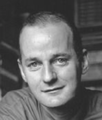




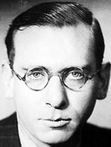



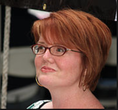
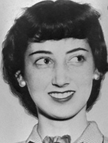




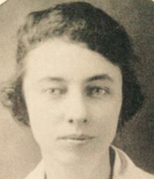


 RSS Feed
RSS Feed